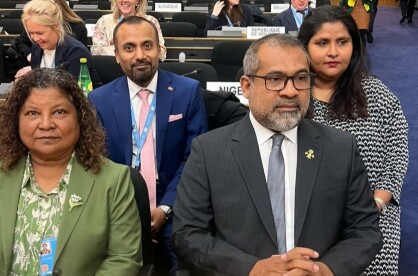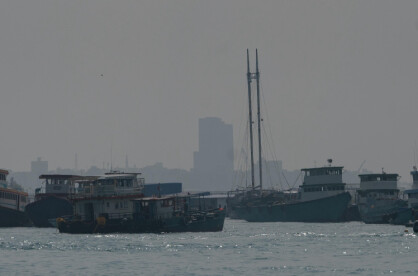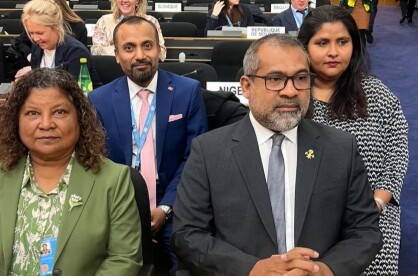In recent times, the Maldives has been seeking ways to amend the employment Act in order to establish a better working environment for the thousands of expatriate workers who move into the country with their own hopes and dreams for a better future. Whether you look at the Maldives’ construction business or the medical sector, doctors and workers from all corners of the globe, especially India and Bangladesh contribute to the ever-evolving Maldivian economy.
Even with such a high number of expatriate workers contributing to the country’s economy, the xenophobia and mistreatment of workers continues to be on the rise in the Maldives. Workers in blue collar jobs continue to face human-rights violations such as employers with-holding their passports, refusing salaries and housing the employees in spaces which are deemed unclean and unsafe for any human. This has led to a myriad of incidents over the years, such as the house-fire that claimed the lives of 10 expatriate workers.
In order to bring some reform into the unsafe and hostile environment that has been created over the years, the Maldivian Government has been seeking amendments, which has finally come into effect. On September 1, 2024, President Dr Mohamed Muizzu officially ratified the eighth amendment to the Maldives Employment Act (2/2008). Following the amendment, the Parliament on the 30th sitting of its second session of this year has passed the amendment - kickstarting the hope for a better future for expatriate workers in the Maldives.
In addition to creating regulations to protect employees rights, the amendment also focuses on ensuring that workers in the Maldives are properly documented - a measure which was extremely important as the recent raids by Maldives Immigration showcased that a large number of undocumented workers continue to work illegally in the Maldives. With this, the amendments states that:
- Foreigners are only permitted to work in the Maldives if they have acquired authorisation in accordance with the Maldives Employment Act and its related regulations.
- Penalties for not complying with these requirements.
- The maximum number of foreigners allowed and identifies the specific sectors or areas where they are permitted to work.
In addition to this, the amendment to the Act has also established and detailed the obligations imposed on employers for the recruitment of foreigners in the Maldives. This includes:
- The registration of the workplace where the foreigners will be employed.
- The acquisition of necessary permissions
- Securing the appropriate quota for foreigners
- Obtaining a valid work permit.
- The procedures for addressing violations by those found to exhibit insensitivity towards foreigners.







